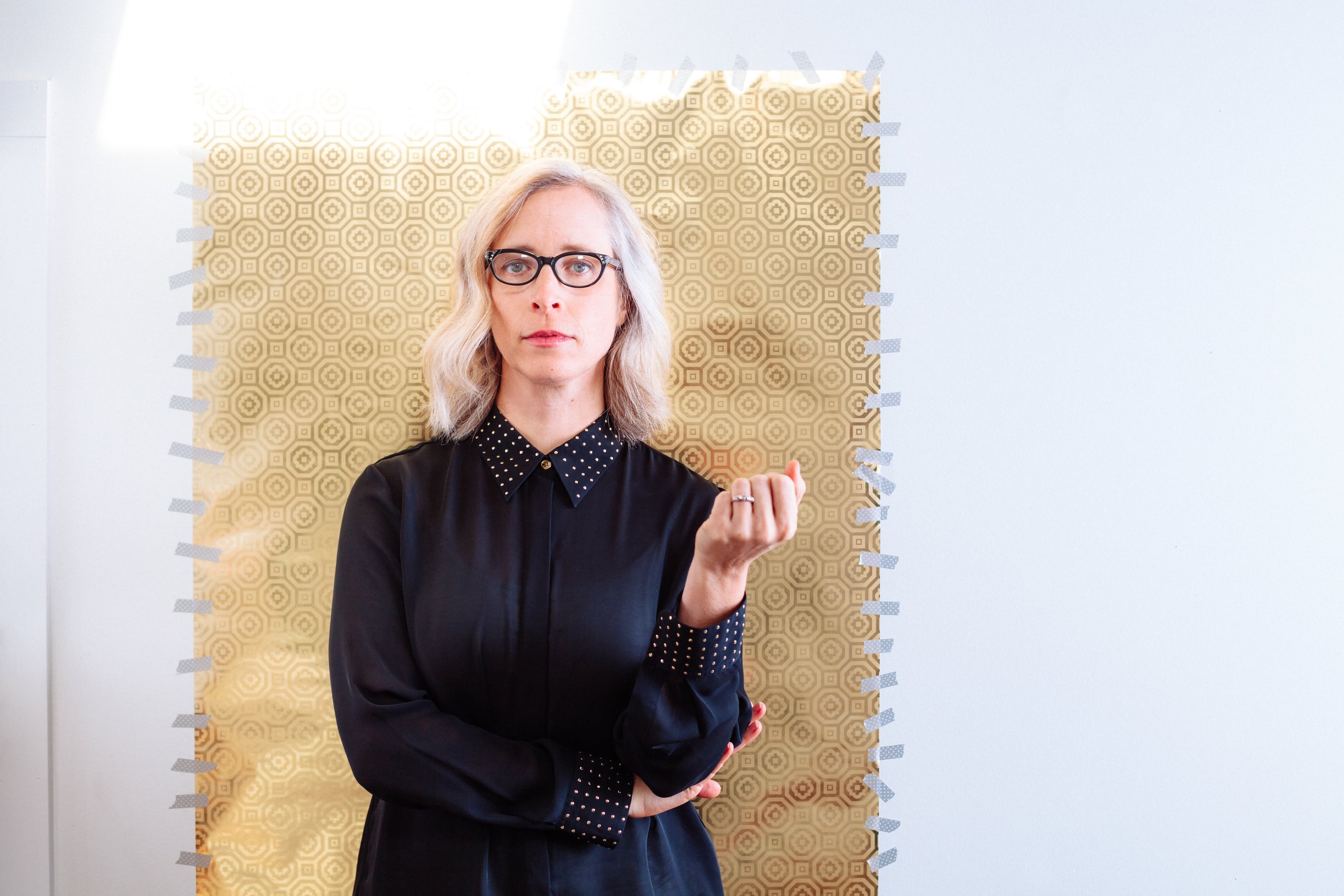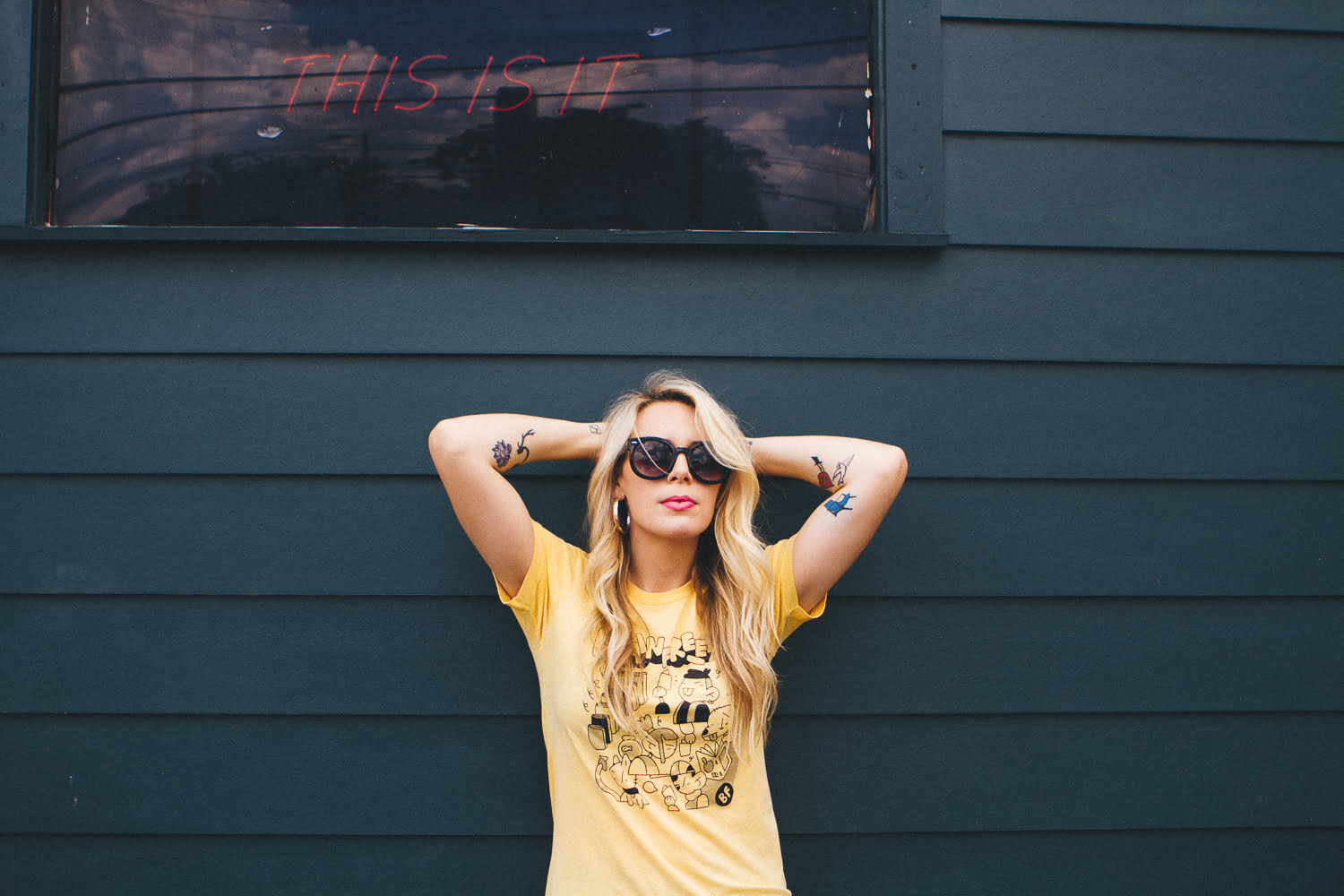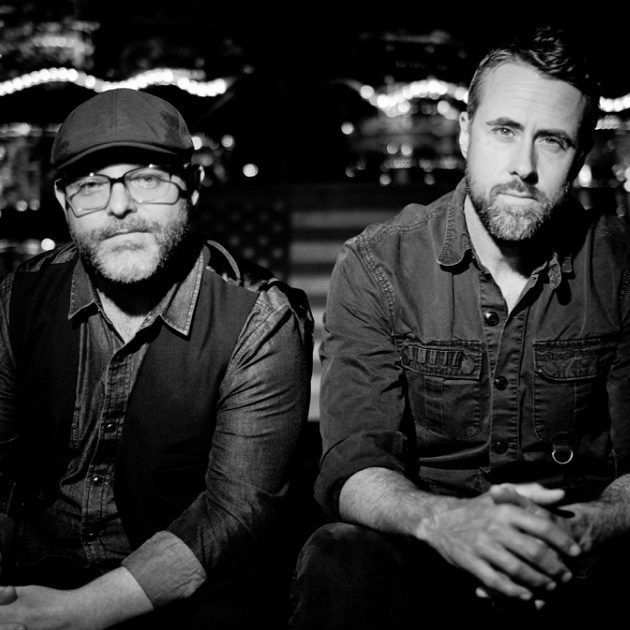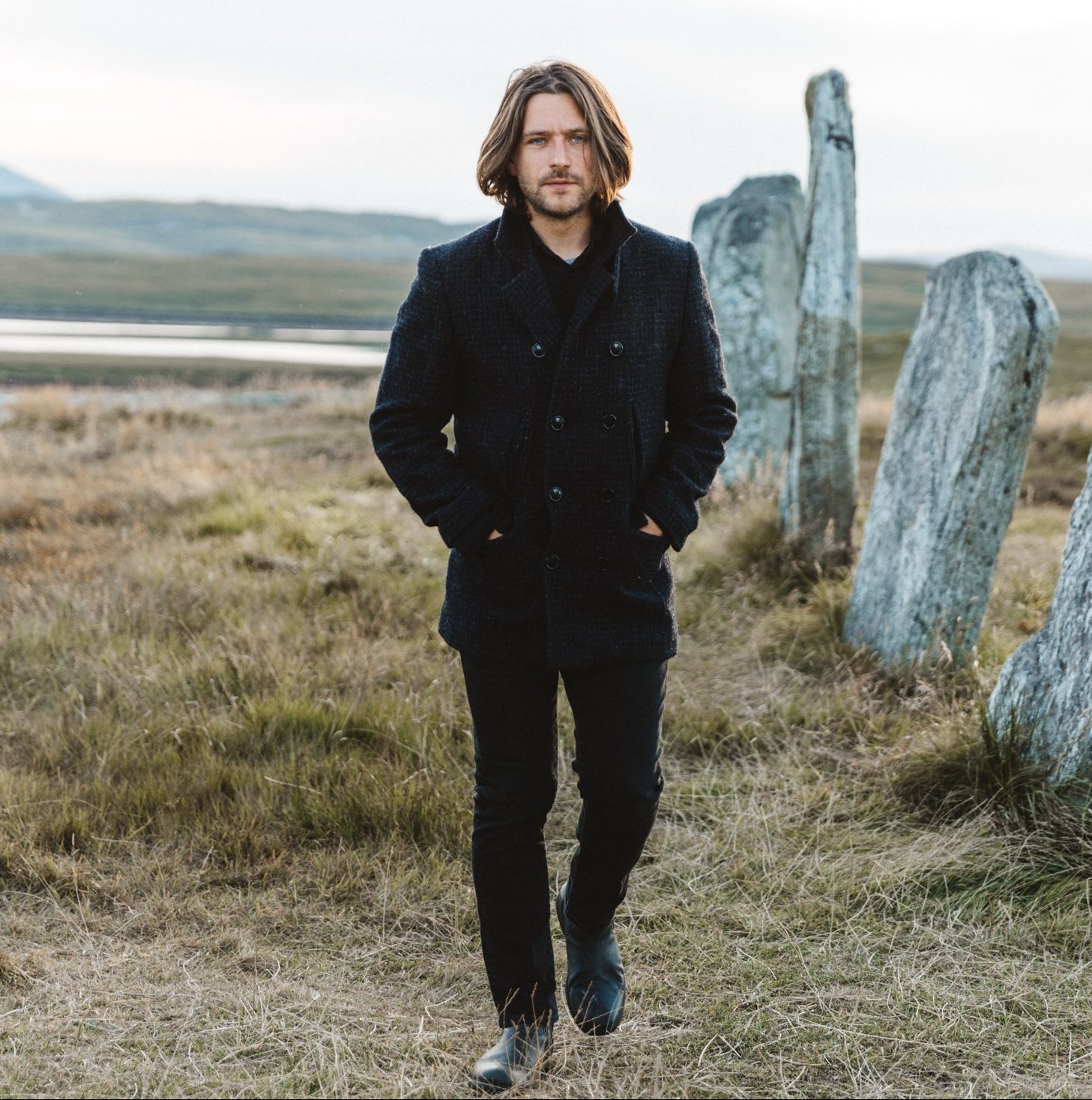Laura Veirs’ new album, The Lookout, celebrates a significant milestone for the singer/songwriter: It marks her 10th solo album. For a musician 20 years into her career, that’s a significant output upon which to reflect at a time when reflection has become more crucial than ever. Like many indie folk artists — those forever attuned to the social, economic, and even political struggles of the world they attempt to capture in song — Veirs has been wrestling with the changes that have taken place since Donald Trump became president. In many ways small and large, his leadership has legitimized certain behaviors that once existed in the shadows. Now, they are out in the open. It’s time more than ever, then, to be on the lookout.
Veirs penned her new album around the trope of protection. The characters that surface across all 12 songs oscillate between protecting and needing protection, because humans, in all their complexity, never simply occupy one role. She punctuates that subject matter with stark and striking natural imagery — meadows, lightning, frost, fire … each setting or accoutrement placing in sharp relief exactly how fragile people truly are, and why we must take care of one another’s safekeeping. After all, as she sings on “When It Grows Darkest,” “When it grows darkest, the stars come out.”
The Lookout is filled with quiet flourishes. Veirs tapped Sufjan Stevens’ steady, whisper-soft vocals for “Watch Fire,” a reminder about staying vigilant for prowling wolves, while “The Lookout” praises the relationship she’s built with husband Tucker Martine — how it’s a safe haven in times of trouble. As foreboding as some of Veirs’ imagery is on The Lookout, her folk sensibility and elegant melodic strains leave the album leaning more toward hope than despair. Keeping watch can be exhausting, but it’s a worthwhile fight.
This album presents an interesting dichotomy: There are characters who protect and characters who need protection. Which side of the line do you think you fall on?
I’d say I’m more in the protector role, as a parent of young children, but I also feel very vulnerable and confused. It’s a very chaotic time and a very confusing time to live in, so I feel I need protection. That song, “The Lookout,” is about my husband Tucker and how he looks out for me, and how precious it is for someone to have your back like that, and how hard it is to trust everyday people sometimes, especially with the divisions we have in our country.
There’s this guy who killed another guy on a train in Portland, and that kind of racial violence and misogyny and the rock getting turned over is just so upsetting. I mean it’s always been like that, but I feel like, with this new administration, there’s this legitimization of violence that we haven’t seen in recent years, and it makes me feel like I want to protect and also need protection myself.
Speaking of parenting, it’s one thing to navigate these newer changes as an individual, but how are you helping guide your children?
He’s gone to protests with us in the past — he went to the Women’s March. We do everything we can to expose them to powerful voices of color, and powerful women, and to have friendships that are not just people exactly like us, to take him to public school, and to support the public school system as much as we can, and to be good citizens, and to show them that it’s a complicated world, but you have your own voice and you have your own power in this. Even though you’re just a child and even though we’re just artists, we can use our voices to try and make the world a better place.
Which is what makes this album so special because you’re working against that sense of complacency that got us to November 2016. On “Seven Falls,” the chorus includes that line about struggling to be kind, so how do you personally fight that?
I definitely have struggled to have compassion and empathy for people who have radically different political views from me.
It’s so hard!
It is hard, and they write us off, which is why we have such a divide, but we need to find a way to bridge it. In that song, it was a little more personal than political, in terms of me thinking that, even though I don’t want to be mean, sometimes I am. We all have a dark side. I need to look at that side of myself to move past it. It could be as simple as just yelling at the kids less, or speaking to my husband in a nicer tone instead of being short and quick. It takes discipline, basically, to not go to that dark place. It can be tiring. Sometimes you just want to be impatient and be a jerk. It’s about the dark side of human nature and how we contend with that, and how it can stay with you, even though you’re getting older. It doesn’t mean you’ve moved past it.
Absolutely, which is why it’s so important to keep talking about it. To pretend it doesn’t exist does everyone a disservice.
Yes.
Does your sense of wonder, either for life or language, feel dulled after 20 years in the business?
Oh, definitely. I think that’s one of the biggest challenges for artists who continue on through decades is how do you maintain your passion for the craft. So much of it is a slog; so much of it is grunt work and there’s no reward. I try to remember there is a reward, and for me they’re, “Wow! I totally got in the flow today, and I forgot time!” That’s a hard thing for a parent of young children to do, because we’re so under the clock. If I can get into that flow state, that feels like such a gift, and that is often where my good writing comes from. I can’t get there all that often, but when I do, it feels so good, and it fuels the next session of writing, which will probably be sort of fallow.
Also, it’s an opportunity to realize how you’ve done this a long time. There’s truly an infinite path here of discovery, whether that means totally changing the way that I’m writing lyrics, or whether that means I’m studying a different style of guitar — I’m learning new chords. I’m changing tunings. I’m studying how other people have written songs in detail. I’m reading books about songwriting. I’m using a very limited palette to limit myself, in terms of chords or guitars or instruments or tracks on a demo. It’s definitely a big challenge to stay in that beginner mind, because you’re not a beginner anymore, but if I can remember that sense of wonder that I felt in the beginning, it does remind me, like, “You still can get there because there’s still so much to learn.” It just takes effort.
It’s tough when you’re a parent because you’re balancing the needs of your children with your creative need, which is why I appreciate the song “Everybody Needs You,” because it’s such an honest moment. How do you carve out time for your creative needs knowing that, if you don’t, it will suffer?
Well, I do treat it as my job, and I’ve always done that. I feel privileged in that I can choose my own hours. I have usually four-to-six-hour days, four days a week. That’s my work schedule. I’ll usually write two-to-three hours of the morning, and then I’ll spend a couple of hours catching up on emails or shopping or cleaning the kitchen or just even going for a run. I don’t usually spend more than three hours writing; I just don’t have the focus. When I am writing, I’m really focused on that. I’ve always done it that way.
That kind of discipline is fantastic.
Yeah, I mean, certain days I guess I don’t really get to it, but mostly I do. And then I’ll take long periods off. I haven’t written a song since I finished making the record in July because I started a podcast, Midnight Lightning. It has taken a remarkable amount of time and energy, and also I wanted a break. I was so burnt out. I feel like breaks are good for people, too. If you get too wrapped up in what someone’s expecting of you, you’ll burn out quick.
How has Midnight Lighting been a different kind of creative influence for you?
I’ve been learning a lot about the art of interviewing, which I hadn’t studied at all. I’ve been listening to that podcast The Turnaround with Jesse Thorn, and he discusses interview techniques with different famous interviewers, and I learned a lot about that. I’ve only done 16 interviews, but I’m really enjoying it.
It’s kind of easy for me — in terms of the subject matter is so close to my heart — to connect with other people. This season, it’s the moms, and I might do another season with dads. It’s been neat to try out the creative side of coming up with questions that feel new and interesting, and then just the risk-taking of not really having notes, and just having a couple things jotted down and winging it. That’s been a good exercise for me. I’ve gotten a lot out of it, and it’s extended my community a lot, which is why I started it.
It’d certainly be interesting to hear from dads in the next season. Now, you said you wrote “Watch Fire” with Sufjan’s voice in mind. You’ve been friends for some time, so why this collaboration now?
I said in the press release that I thought of it, but actually Tucker did. He was really the one who heard Sufjan’s voice on there and, once he said that, I really could hear it. We’d never asked him before, but he’d asked me to sing on something, and it felt like a natural thing to try. He did it, and it sounds like a good fit for his voice, that line that he’s singing.
Right, and I love that sense of historical circularity — there’s always a wolf we have to watch out for. How do we stay on guard?
I think just looking up, looking out. Don’t get so buried in your phone. You see all these people on the street — I sound like an old lady — but they don’t even look up anymore. Keeping your eyes open and looking out for each other and staying awake, whatever that means. Stay alert.
Lastly, nature plays a large role on this project. You position people in places steeped in natural imagery. With your background in geology, are you always aware of this connection between people and the environment?
Yeah, my parents took us camping a million times growing up. We spent a lot of time outside. My dad was a physics professor and always explained how everything works, and my mom was an artist and craft weaver, and I really do feel like that combination of my mom and dad comes into my work a lot.






